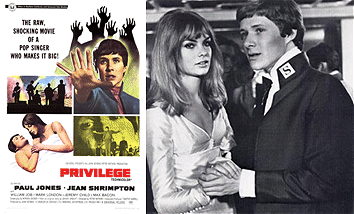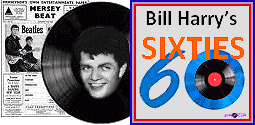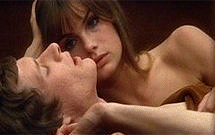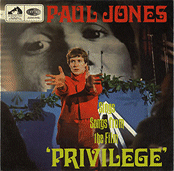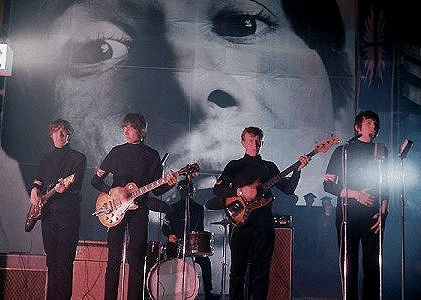 |
Producer
John Heyman commissioned television writer Johnny Speight to pen a screenplay
for him which was intended to be a satire that would “expose the rotten
world of pop". He then hired American author Norman Bognor to rewrite
the entire script, transforming it.
When he approached Peter Watkins to direct, Watkins also took part in
re-writing the screenplay with Bognor. Discussing the making of the
movie, Watkins was to say, “In 1966, following the collapse of a film
which I had hoped to develop with Albert Finney’s production company,
on the 1916 Easter uprising in Dublin, I was approached by John Heyman,
a British artists’ agent, to make a film based on an original screenplay
by Johnny Speight, which dealt with the influence of Steven Shorter,
a pop star in the 1960s.
Watkins had directed the acclaimed television drama ‘Culloden’ and also
the television depiction of a nuclear attack on Britain called ‘The
War Game’, which the BBC had banned. This was to be his first feature
film.
He comments, “American novelist Norman Bognor and I adapted the script,
which we re-titled ‘Privilege’, to emphasise the significance of Steven
Shorter as an allegory for the manner in which national states, working
via religion, the mass media, sports, popular culture, etc., divert
a potential political challenge by young people. |
